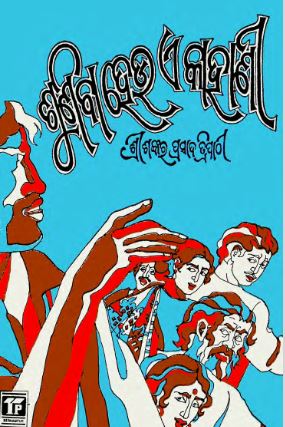Suniba Heu E Kahani, penned by the acclaimed playwright Sankar Prasad Tripathy and published in 1993, stands as a significant contribution to Odia theater and literature. This play intricately weaves together elements of drama, social commentary, and emotional depth, capturing the essence of human experiences and societal dynamics through its engaging narrative.
The title “Suniba Heu E Kahani” translates to “Let Me Hear This Story,” which serves as an invitation to both the characters within the play and the audience to engage with the unfolding tale. The play is structured in a way that allows characters to reflect on their lives, choices, and the societal norms that shape their destinies. This reflective quality makes the audience a participant in the storytelling experience, drawing them into the emotional and ethical dilemmas presented on stage.
At its heart, “Suniba Heu E Kahani” explores themes of identity, morality, and the quest for truth. The narrative centers around a protagonist who grapples with personal challenges and social pressures that threaten to define them. As the story unfolds, the characters confront their own prejudices, aspirations, and fears, revealing the complexities of human relationships and the motivations that drive individuals in their pursuit of happiness.
One of the play’s significant aspects is its focus on societal issues, particularly those relevant to contemporary Odia culture. The author deftly critiques the prevailing norms and values that can stifle individuality and authenticity. Through the dialogues and interactions among the characters, Tripathy sheds light on the struggles individuals face within the societal framework, prompting audiences to reflect on their own experiences and beliefs.
The characters in “Suniba Heu E Kahani” are richly developed, each representing different facets of society. The protagonist serves as a mirror for the audience, embodying the trials and tribulations that resonate with many. Supporting characters, from friends to family members, provide a multifaceted perspective on the main theme, illustrating the interconnectedness of human experiences. Their interactions are marked by wit, emotion, and occasional tension, keeping the audience engaged and invested in their journeys.
Sankar Prasad Tripathy’s use of language in “Suniba Heu E Kahani” is both lyrical and accessible, making the dialogues resonate with audiences from various backgrounds. The playwright skillfully combines local idioms with poetic expressions, creating a rhythm that complements the emotional depth of the narrative. This stylistic choice enhances the authenticity of the characters, allowing their voices to reflect the rich cultural tapestry of Odisha.
Suniba Heu E Kahani is not merely a play; it is a poignant exploration of the human condition, a lyrical reflection on the struggles for identity, and a compelling critique of societal norms. Through this work, Sankar Prasad Tripathy invites the audience into a realm of introspection and emotional resonance, encouraging them to contemplate their own stories and connections.
The play encompasses a timeless quality that ensures its relevance across generations, making it a cherished addition to Odia literature and theater. Its ability to provoke thought and evoke empathy ensures that “Suniba Heu E Kahani” remains a classic piece that continues to inspire and challenge audiences to embrace their narratives and seek out the truths intertwined within.
Books Info
| Books name | Suniba Heu E Kahani |
| Author | Sankar Prasad Tripathy |
| No Of pages | 35 |
| Publisher | Taratarini Pustakalaya |
| Publication | 1993 |
| Printed At | Manamohan Tredars |
| Distributor | NA |

